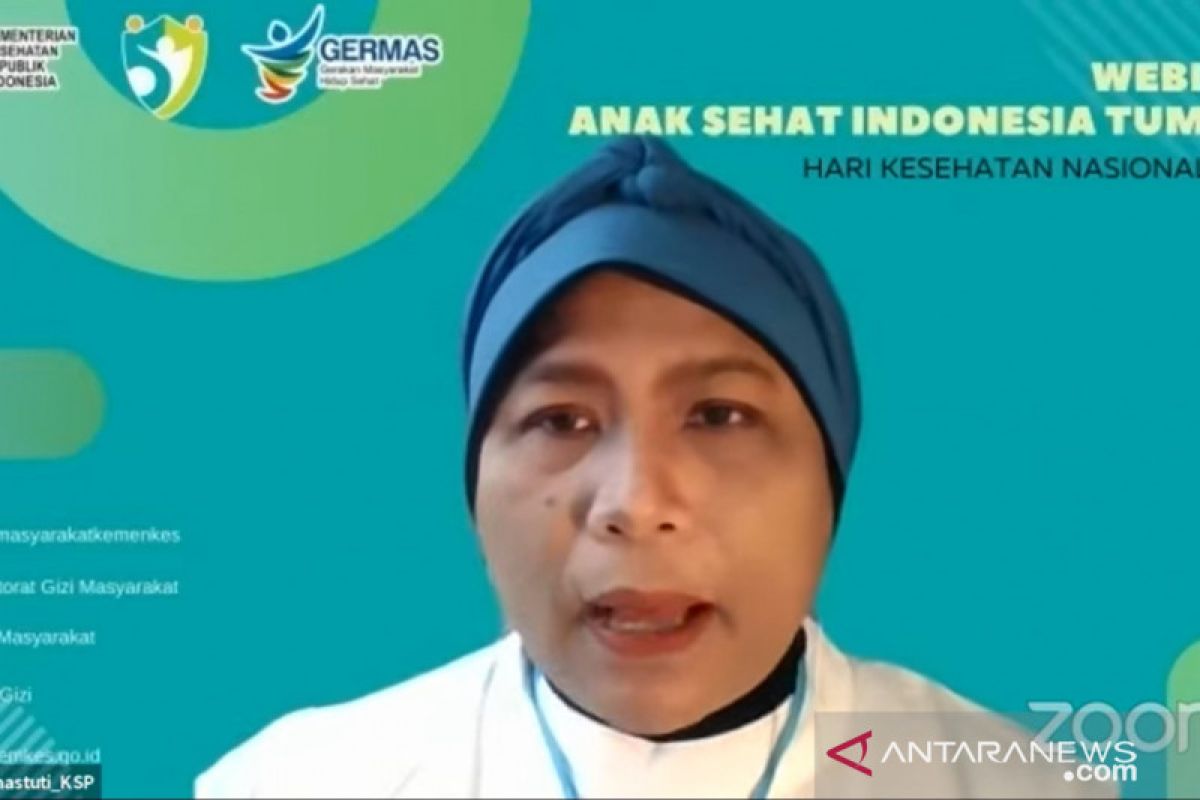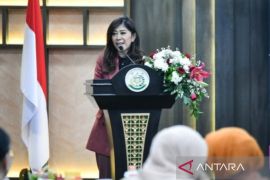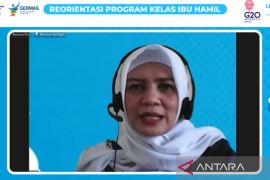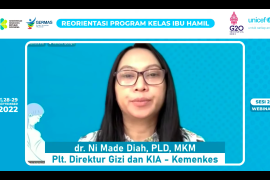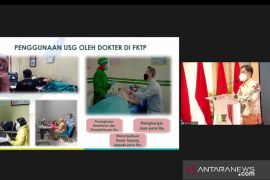Our job is to place mothers as the subject. Meaning, we not only talk about mothers' obligation toward the family, but also mothers' rights within a family.Jakarta (ANTARA) - To prevent childhood stunting, the discourse needs to shift from mothers' responsibilities toward the family to their rights within the family, thus making them the subjects, not objects, of anti-stunting programs, an official has said.
"Our job is to place mothers as the subject. Meaning, we not only talk about mothers' obligation toward the family, but also mothers' rights within a family," senior advisor at the Presidential Staff Office, Brian Sriprahastuti, stated during the national health day webinar originating from here on Thursday.
Mothers have been positioned as the objects of programs so far, thus, they have been asked to be responsible for taking care of their health so that they can nurse children at home, she explained.
However, not many people talk about mothers' rights as women within a household, she added.
To start placing women as the subjects of stunting prevention programs, families need to reconsider the dual role that mothers have to play, Sriprahastuti said.
While mothers are responsible for taking care of their families, they also have the right to receive health advice and education concerning the prevention of stunting at birth, she explained.
"To prevent stunting at the family level, women's double roles should not be emphasized. Meaning that other family members should also act," she said.
According to Sriprahastuti, mothers belong to a vulnerable group because they have the function of carrying out reproduction and adhering to the social construct adjusted with gender. Hence, strategies to empower mothers as women are required, she stressed.
One of the strategies that could be conducted to empower mothers is to let them make decisions regarding themselves and children within the family, she said.
Next, mothers' conditions when they are pregnant, in labor, and when they breastfeed should be considered, she added. During these phases, mothers should ensure their children are born safely and grow optimally, she said.
Women have the responsibility of ensuring their children are born safely and in a healthy state, weighing more than 2,500 grams and measuring more than 48 centimeters in body length, she added.
"On the other hand, mothers face the risk of death during labor," Sriprahastuti pointed out.
Lastly, mothers, as a vulnerable group, could face situations where they cannot carry out their role within a family, she said. Hence, the family's role is a necessity, such as when mothers take maternity leave, she added.
During such times, mothers' nutritional needs and health should be paid attention to since they would affect the quality and production of breastmilk, she said.
"As a result, the double roles become heavier on women's shoulders, which is why there should be an effort to ensure that their partners can share the (familial) role," she added.
Related news: Governor pushes to increase fish consumption to prevent stunting
Related news: Batam can reduce child stunting rate by 2024: BKKBN
Translator: Hreeloita S, Fadhli Ruhman
Editor: Rahmad Nasution
Copyright © ANTARA 2021
